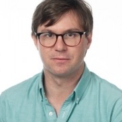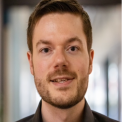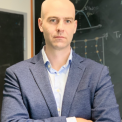Magnetism is a fascinating phenomenon with roots in the ancient world. Although its precise understanding calls for relativistic quantum mechanics and field theory, it is integral to everyday technologies. In magnetic insulators, electrons are closely bound to a crystal lattice and carry strongly interacting magnetic dipoles; as a result, phases of matter with no classical analogs are possible. Such quantum magnetic phases are of great fundamental interest as a testbed of our understanding of many-particle quantum mechanics. In the first part of this lecture, I will discuss some of the central ideas in quantum magnetism, from the Heisenberg model to the more recent concepts introduced by Kitaev and others. Then, I will explain our research program to search for these simple models in bulk materials and understand their properties using neutron spectroscopy.
Events Calendar View
-
Departmental Colloquium
Sep 29, 2022
The New Wave of Quantum Magnetism
-
CSP Lunch Seminar
Oct 4, 2022
Langevin Dynamics/Monte Carlo Simulations of Moire Bilayers, pt. 2
-
Departmental Colloquium
Oct 6, 2022
Nanophotonics for enhanced sensing and spectroscopy: towards point-of-care devices
Nanotechnology and specifically nanophotonics have been at the forefront of biosensor development because they promise the integration of bulky analytical equipment into ultrasmall footprints. This size reduction makes nanophotonic approaches ideal for transitioning traditional sensing and spectroscopy concepts towards the point-of-care, enabling the delivery of rapid diagnostic results, and contributing to improved patient outcomes. In my talk, I will introduce several examples of such nanophotonics-based sensors and highlight how they can provide conceptual advances and improved performance for biomedical detection, covering a wide range of applications from lipid membrane and vesicular processes to the identification of antibodies and biomarkers for disease.
-
CSP Lunch Seminar
Oct 11, 2022
On the First Law of Thermodynamics in Time-Dependent Open Quantum Systems
-
Departmental Colloquium
Oct 13, 2022
Entanglement area law in superfluid helium
Area laws were first discovered by Bekenstein and Hawking, who found that the entropy of a black hole grows proportional to its surface area, and not its volume. Entropy area laws have since become a fundamental part of modern physics, from the holographic principle in quantum gravity to ground state wavefunctions of quantum matter, where entanglement entropy is generically found to obey area law scaling. As no experiments are currently capable of directly probing the entanglement area law in naturally occurring many-body systems, evidence of its existence is based on studies of simplified theories. Using new exact microscopic ground state Monte Carlo simulations of superfluid helium, we demonstrate for the first time area law scaling of entanglement entropy in a real quantum liquid in three dimensions. We validate the fundamental principles underlying its physical origin, and explore an "entanglement equation of state" showing how it depends on the density of the superfluid.
-
CSP Lunch Seminar
Oct 18, 2022
Simulating the evolution of dust particles in planet-forming discs
Page 119 of 121, showing 6 records out of 723 total, starting on record 709, ending on 714




